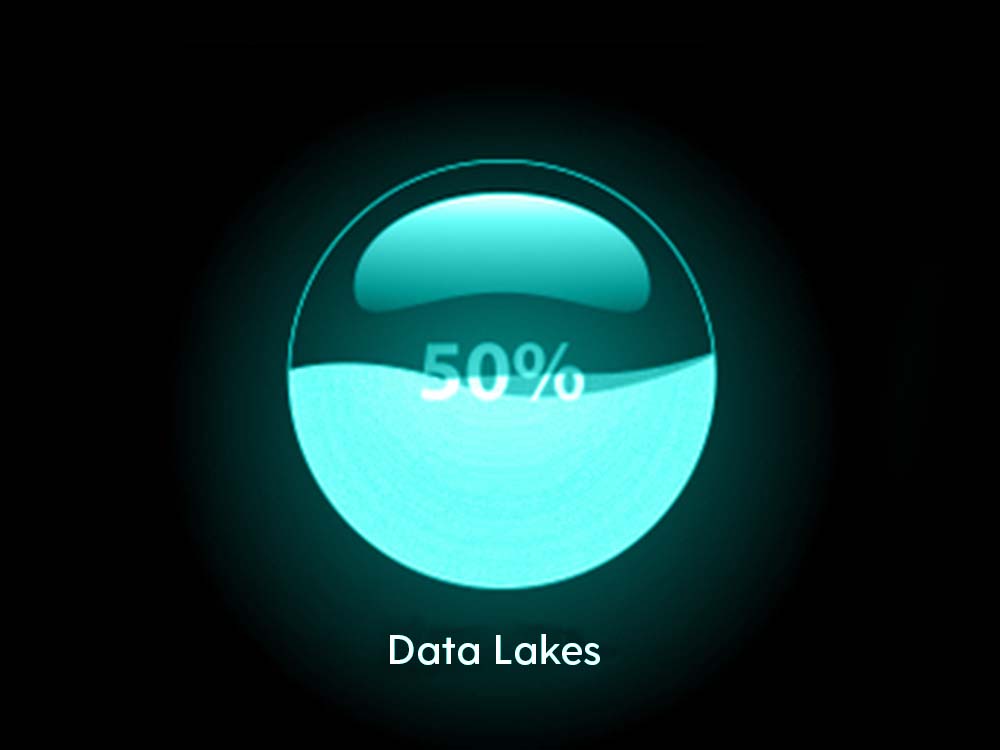In today’s data-driven world, organizations are constantly striving to extract valuable insights from the vast amount of data they generate. Big data analytics has emerged as a key enabler in this quest for actionable intelligence. However, managing and analyzing large volumes of data can be a complex and challenging task. This is where data lakes come into play. Data lakes are revolutionizing the way businesses handle and leverage their data assets, offering a scalable and flexible solution for big data analytics.
What Are Data Lakes?
Data lakes are centralized repositories that store vast amounts of structured, semi-structured, and unstructured data in its raw form. Unlike traditional data warehouses, which require data to be structured and organized upfront, data lakes provide a more agile and flexible approach to data storage and analysis. They offer a scalable and cost-effective solution for storing data, enabling organizations to explore new data sources and capture valuable insights.
Benefits of Data Lakes
Data lakes offer a range of benefits that make them a powerful tool for organizations seeking to leverage their data assets effectively. Let’s explore some of its key benefits:
1. Scalable Storage
Data lakes provide scalable storage infrastructure that can handle the ever-increasing volume of data. With the exponential growth of data, organizations need a solution that can accommodate the growing data demands. Data rivers offer a cost-effective storage solution, allowing businesses to store and manage vast amounts of data without worrying about storage constraints.
2. Flexible Data Processing
One of the key advantages of data lakes is their ability to process data in various formats. Whether it’s structured data from relational databases, semi-structured data like JSON or XML, or unstructured data such as text documents or images, lakes can handle it all. This flexibility allows organizations to leverage different processing frameworks, such as Hadoop and Spark, and perform advanced analytics on diverse data types.
3. Advanced Analytics Capabilities
Data lakes serve as a foundation for advanced analytics. By integrating with analytics tools and platforms, organizations can unleash the full potential of their data. With lakes, you can perform complex analytics tasks, including data exploration, predictive modeling, and real-time analytics. The ability to combine different data sources and perform advanced analytics enables organizations to uncover valuable insights and make data-driven decisions.
4. Data Governance and Security
Data governance and security are critical aspects of any data management strategy. Data incorporate robust governance frameworks and security measures to ensure data integrity, privacy, and compliance with regulatory requirements. By implementing data governance policies and security controls, organizations can maintain control over their data and ensure that it is accessible only to authorized personnel.
5. Optimized Performance
Performance is a crucial factor when dealing with big data analytics. Data lakes can be optimized for performance by fine-tuning data processing pipelines, implementing data caching mechanisms, and leveraging distributed computing technologies. These optimizations ensure fast and efficient data access and analysis, enabling organizations to derive insights in a timely manner.
Architecture of Data Lakes

The architecture of data lakes is designed to accommodate the storage and processing of large volumes of data. It consists of various components that work together to enable data ingestion, storage, and analysis.
1. Data Ingestion
Data ingestion is the process of collecting and importing data into the data lake. It involves extracting data from various sources, transforming it into a suitable format, and loading it into the data lake. This process can be automated using tools and technologies that support data integration and data pipelines.
2. Data Storage
Data lakes store data in its raw and unprocessed form. They do not require data to be structured or organized upfront, allowing for more agility and flexibility. Data can be stored in a distributed file system, such as Hadoop Distributed File System (HDFS), or in cloud-based storage solutions. The use of scalable storage ensures that data lakes can accommodate large volumes of data.
3. Data Processing and Analytics
Data lakes support various processing and analytics frameworks to derive insights from the stored data. Technologies like Apache Hadoop and Apache Spark enable organizations to perform batch processing, real-time analytics, and machine learning. These frameworks provide the necessary tools and libraries to process and analyze data at scale.
4. Data Governance and Metadata Management
Data governance is crucial for maintaining data quality, consistency, and security in data lakes. It involves defining data policies, establishing data lineage, and implementing access controls. Metadata management is also essential to keep track of the data stored in the data lake, including its structure, format, and origin. Metadata helps users understand the data and facilitates data discovery and analysis.
Best Practices for Data Lakes In Analytics

To ensure the successful implementation and utilization of data, organizations should follow best practices that optimize their effectiveness and mitigate potential challenges.
Define a Clear Data Strategy
A clear data strategy is essential for aligning data lake initiatives with business goals. Organizations should define the purpose of their data lake, identify the types of data to be stored, and establish data governance and security measures. A well-defined strategy sets the foundation for a successful data lake implementation.
Ensure Data Quality and Consistency
Data lakes should maintain high standards of data quality and consistency. This involves establishing data validation processes, implementing data cleansing techniques, and defining data quality metrics. By ensuring data integrity, organizations can trust the insights derived from the data lake and make informed decisions.
Implement Robust Security Measures
Data security is a critical aspect of data lakes. Organizations should implement robust security measures, including access controls, encryption, and authentication mechanisms. Data lakes should adhere to industry regulations and comply with privacy requirements to protect sensitive data from unauthorized access.
Establish Data Governance Frameworks
Data governance frameworks ensure that data lakes are governed effectively. Organizations should define data governance policies, establish data ownership, and enforce data stewardship. Data governance ensures data accountability, standardization, and compliance, fostering trust and confidence in the data lake.
Foster Collaboration and Data Sharing
Data lakes enable collaboration and data sharing across departments and teams. Organizations should promote a culture of data-driven decision-making and encourage cross-functional collaboration. By sharing data and insights, organizations can leverage the collective knowledge and expertise of their teams and drive innovation.
Conclusion
Data lakes have revolutionized big data analytics by providing scalable storage, flexible data processing, and advanced analytics capabilities. With their ability to store and analyze large volumes of data in its raw form, data lakes empower organizations to derive valuable insights and make data-driven decisions. By following best practices and leveraging the architecture of analytical lakes, organizations can unlock the full potential of their data assets and gain a competitive advantage in today’s data-driven landscape.
Unlock the power of data lakes in your big data analytics initiatives. Visit AI Data House to learn more about our data lake solutions and how we can help you harness the full potential of big data analytics. Take the first step towards data-driven success today!










